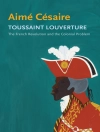China’s strong economic growth occurring alongside modernization across the great majority of Asian societies has created what many see as a transnational space through and by which not only economic, social and cultural resources, but also threats and crises flow over traditional political boundaries. The first section of the work lays out a clear conceptual framework. It draws on arguments about nation no longer being the only container of society, about trans-disciplinary thinking, and about knowledge being context-bound. It identifies and discusses distinctive features of China and Asia in the global era. These include population, urbanization and climate change; the continuing reach of Orientalist shadows; cultural politics of knowledge. It closes by arguing how global studies adds value to existing accounts. The second, and longer, section applies this framework through a series of original empirical case-studies in three areas: migration/poverty/gender; culture/education; well-being.
Both the conceptual framework and case-studies are drawn from research presented at HKBU since 2011 under the auspices of the Global Social Sciences Conference Series and supplemented by additional papers.
เกี่ยวกับผู้แต่ง
Adrian J. Bailey, Hong Kong Baptist University, Hong Kong;
Ricardo K. S. Mak, Hong Kong Baptist University, Hong Kong.












